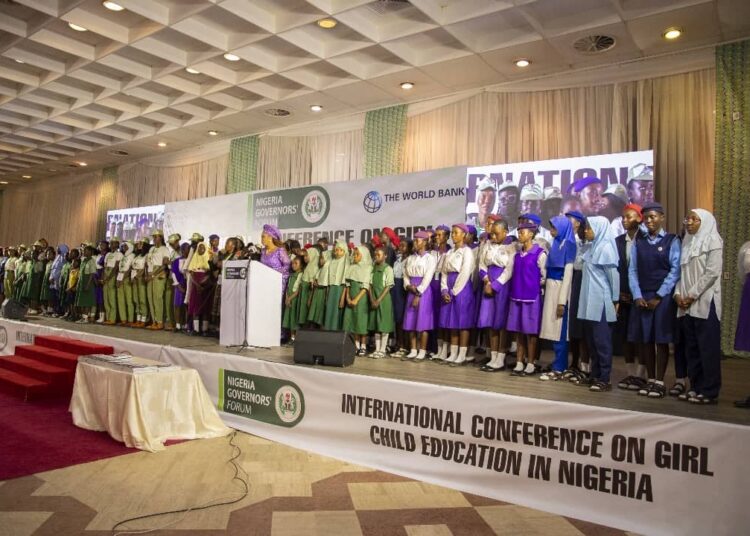Chairperson of the Nigeria Governors’ Spouses Forum and the First Lady of Kwara State, Prof. Olufolake Abdulrazaq, has raised the alarm over the disproportionate number of girls among the out-of-school children in Nigeria.
She disclosed this on Friday at the Nigeria Governors’ Forum conference on Girl Child Education in Nigeria, which held at the Presidential Villa, Abuja.
“It may interest you to know that more than 60% of the out-of-school children in Nigeria are girls,” Mrs Abdulrazaq stated.
She highlighted the urgent need for action to address this gender disparity in education.
The Kwara First Lady emphasised that the situation demanded immediate attention and targeted strategies.
She expressed hope that the conference would yield “clear, targeted, and state-specific strategies that will further ensure that we reduce the rate of out-of-school children and enhance retention, transition, and completion.”
Mrs Abdulrazaq pointed out several factors contributing to the alarming statistic.
One key issue she highlighted was the lack of basic necessities.
“You don’t know what it is when a child has sandals. You know, some children will stay away from school because they don’t have sandals or bags, because they’re laughed at in school,” she explained.
The First Lady of Kwara State also drew attention to a often overlooked factor keeping girls out of school: “Another thing I’m going to mention here is what we do when we talk about female hygiene products as well.
“And in your respective states, it’s important to look at this, because this constitutes a major reason why girls stay out of school as well, the lack of female hygiene products.”
To combat the issues, Mrs Abdulrazaq shared initiatives from Kwara State, where her office “provide(s) incentives like sandals, school bags, and other schooling materials to endear children, particularly girls, to enrolling and staying in school.”
The First Lady stressed the importance of education as a fundamental right, stating, “The right of Nigeria’s girl child to education, you will agree with me, is a matter of obligation and moral imperative.”
She added that this imperative “strives to explicitly challenge bias and discrimination in the society, and seeks to identify critical gender disparities, and address the underlying factors that contribute to those disparities that mitigate against the right of the girl child to qualitative education.”
Abdulrazaq called for a comprehensive approach to address this issue, including “targeted investments… to improve the quality and effectiveness of technical, vocational education and training for adolescent girls and young women.”
She argued that this would provide “girls with the skills and capabilities for decent work, and therefore helps to ensure a smooth transition into employment and entrepreneurship.”
In her concluding remarks, the First Lady made a powerful plea: “Together, let’s continue to work to empower communities and raise awareness to protect the rights of girls by supporting initiatives such as this, and engaging in dialogue to create a future where every girl can be safe, can learn, can thrive, and determine their own future.”





